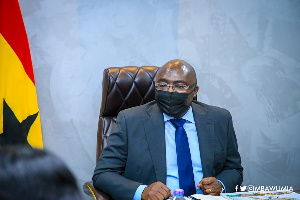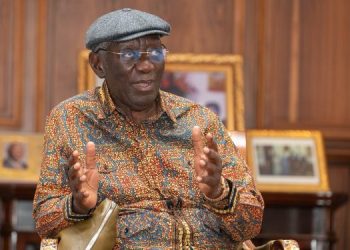Vice President Mahamudu Bawumia has justified the decision to purge the banking sector back in 2018 as part of a regulatory crackdown to restore stability.
He argues that data presented by the Bank of Ghana showed that the sector was at a near collapse, hence the decision made to undertake a clean-up as they were initial indicators depositors were not getting back their funds from some companies.
Speaking at an Industrial and Commercial Workers Union’s Conference at the University of Professional Studies in Accra (UPSA), Dr. Bawumia described the decision taken as painful but necessary.
“We had a situation where you had cancer and it is in your throat and if you don’t cut it off, it’s going to spread and we had to cut it off. Government is not elected to make the easy decisions and it is the hard decisions that often distinguishes a good government from a not-so-good government,” Dr. Bawumia said.
He pointed that the rather painful but necessary clean-up exercise and the reforms implemented resulted in the safeguarding of investments for some 4.6 million depositors.
“In the end, we saved the banking system and the bigger financial system and safeguarded the hard-earned lifetime investments of 4.6 million depositors many of whom are workers. We would have had a collapse and this economy would not have recovered that easily, if everybody lost their savings in the bank,” the Vice President said.
The clean-up exercise in 2018 saw the central bank first revoking the licences of UT Bank and UniBank Ghana Limited. Their assets and liabilities were then handed over to the state-owned GCB Bank.
That very year, UniBank as well as four other defunct banks were placed on administration by the Bank of Ghana. They then merged into the Consolidated Bank Ghana (CBG).
In all, some nine indigenous banks were collapsed along with over 400 deposit-taking institutions and fund management firms.
The central bank on the other hand explained the crackdown was based on poor business practices and weak capital positions of the banks and financial institutions.
source: Ghana Web


















































